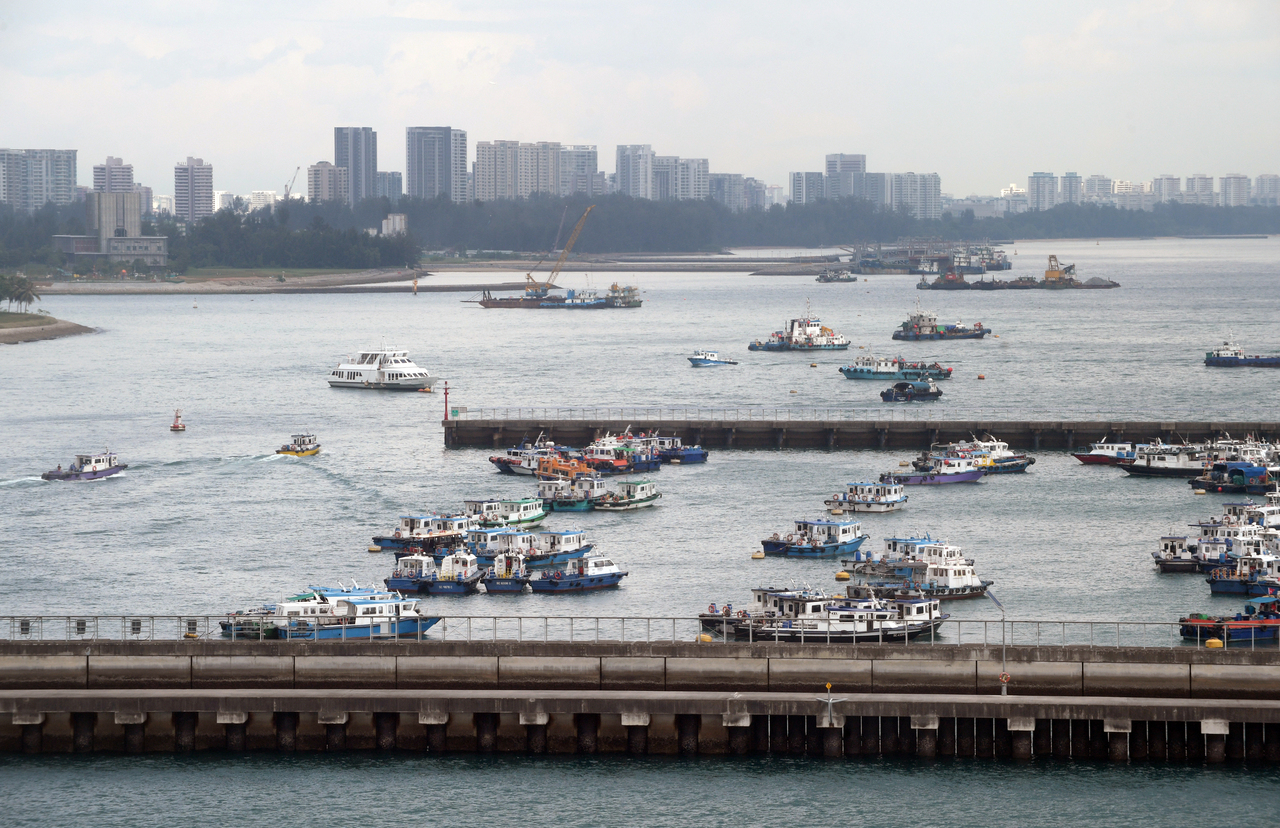Revised industry map for shipping sector targets $2 billion growth and 1,000 new jobs
Sign up now: Get ST's newsletters delivered to your inbox

The industry has been one of the most resilient amid Covid-19.
ST PHOTO: ALPHONSUS CHERN
SINGAPORE - A revised road map to 2025 for Singapore's shipping sector wants to grow the industry by $2 billion and create 1,000 new jobs, cementing the country's reputation as a "catch-up" port acquired during the global port congestions amid the Covid-19 pandemic.
The initial Sea Transport Industry Transformation Map, which was launched in 2018, had a target of $4.5 billion growth and 5,000 new jobs by 2025.
The Straits Times has asked the Maritime and Port Authority of Singapore (MPA) if the earlier targets have been revised and if so, why.
The new plan was announced by Deputy Prime Minister Heng Swee Keat on Monday (April 4) at the opening ceremony of Singapore Maritime Week.
It has four broad strategies to:
- make Singapore ports more sustainable and resilient to disruption;
- be more innovative through the development of marine technology;
- better support small and medium-sized enterprises and start-ups; and
- attract and develop talent.
The industry has been one of the most resilient amid Covid-19, with shipping fees now four times higher than pre-Covid-19 levels, and Singapore ports recording an all-time-high of 37.5 million 20-foot equivalent units of container throughput last year.
During the opening ceremony, Transport Minister S. Iswaran said the world is already beginning to see a post-pandemic recovery, with global trade last year increasing by about 13 per cent in value from 2019.
But supply chains are becoming more flexible and regional, and the sector must continue to adapt, he added.
He noted that Singapore will step up scholarships and awards to attract talent and support those who are in the middle of their careers to switch tracks. Since 2018, over 200 mid-career workers in the sector have undergone skills training.
The new jobs included in the road map are those that involve handling data analytics, data science, software engineering, and sustainability management.
Mr Iswaran said Singapore will join the Clydebank Declaration for Green Shipping Corridors with 22 other signatory states, which was launched by Britain last year to set up green shipping corridors between ports for zero-emission vessel voyages.
These ports should be alternative fuel-friendly and have charging infrastructure for electric crafts.
Separately, the Ministry of Transport and MPA have established a Maritime International Advisory Panel to discuss how the maritime sector and other industries can work together to strengthen supply chains.
It will be chaired by Mr Iswaran and comprise 12 top global business leaders in e-commerce, energy and commodity, maritime, consultancy, finance, logistics and manufacturing and technology.
They include Dr Detlef Trefzger, chief executive of shipping firm Kuehne+Nagel International and Mr Yang Zhijian, chairman and managing director of Cosco Shipping Lines.


